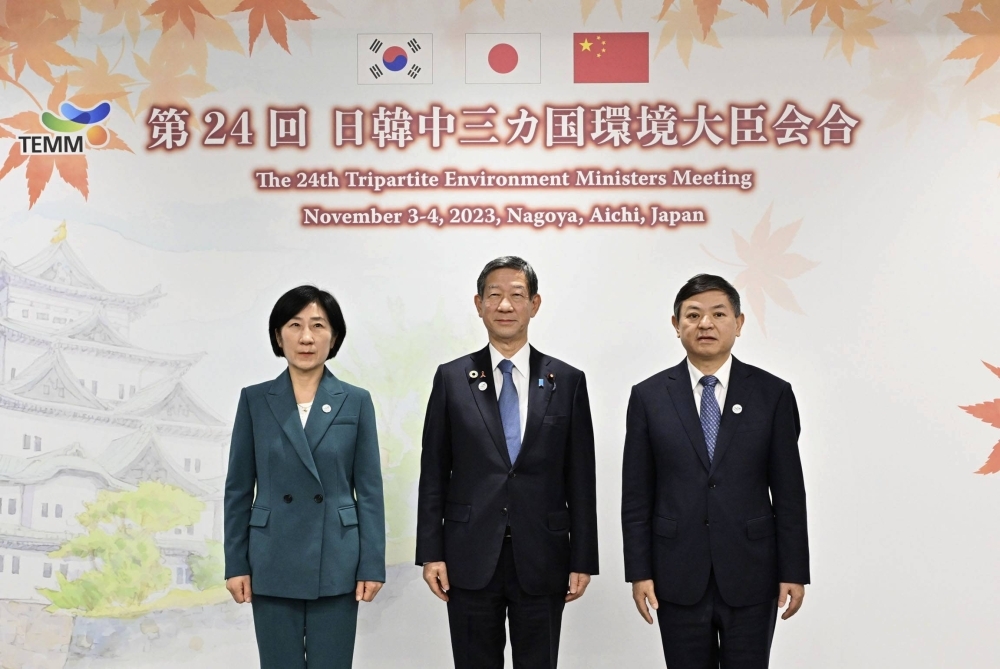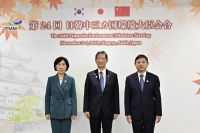Japan on Saturday emphasized the safety of the ongoing release into the sea of treated radioactive wastewater from the crippled Fukushima No. 1 nuclear power plant, during a meeting of environment ministers involving China and South Korea.
"We have confirmed that there is no impact on people and the environment," Environment Minister Shintaro Ito told the meeting in Nagoya. China has criticized Japan over the water release and imposed a blanket ban on Japanese seafood imports.
Chinese Ecology and Environment Minister Huang Runqiu referred to "nuclear-contaminated water," as Beijing often does, and called for "thorough consultations with other stakeholders, especially neighbors" regarding its disposal "in a responsible way."
Ito emphasized that Japan will continue to improve the reliability of radiation monitoring in nearby waters and its transparency on the issue.
The Japanese government began releasing the treated water into the Pacific Ocean from late August amid efforts to decommission the stricken reactors at the Fukushima No. 1 nuclear plant, which was devastated by a huge earthquake and tsunami in March 2011.
Massive amounts of contaminated water have been generated in the process of cooling melted reactor fuel. The water goes through a liquid processing system that removes most radionuclides except tritium, and the tritium levels are significantly diluted with seawater prior to release.
Since 1999, environment ministers from the three Asian countries have held annual meetings to discuss global and regional environmental issues and strengthen cooperation.
In the latest meeting, the three countries also discussed progress in efforts to tackle marine litter, air pollution and other issues based on a five-year action plan through 2025.




